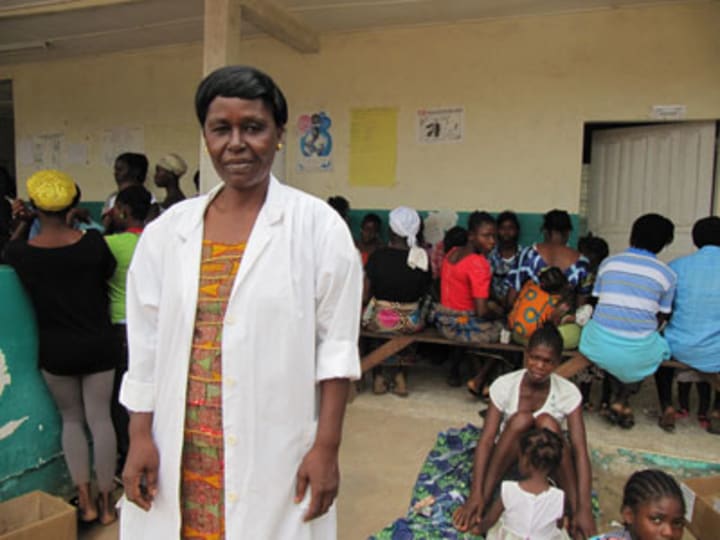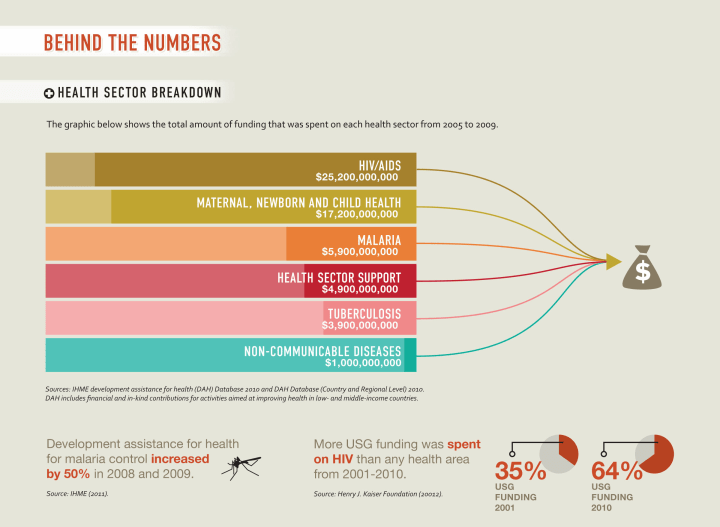
The oldest republic in Africa, Liberia, is a small West African country with fewer than 4 million people. We are a poor country, but rich in natural and human resources. After emerging from a long war that tore apart the fabric of our society, ruined our institutions and destroyed our infrastructure, we are rebuilding and have a vision of a healthy population with social protection for all our citizens.
Under the strong leadership of President Ellen Johnson Sirleaf, my job as Minister of Health and Social Welfare has been to coordinate the rebuilding of the health sector, to improve the health and social welfare status of all Liberians, and to set the health care system on a course to a sustainable future.
It is said that health is wealth, and from my experience, this must be true because providing health care is definitely very expensive. I have had to spend a great deal of my time as a hospital director, a county health officer and as a minister trying to raise the necessary funds to ensure essential health services are available. If there is one thing I have learned along the way, it is that there is no such thing as free health care — someone always has to pay for it.
Since the end of the war in Liberia, donors have funded the majority (60 percent) of health service delivery costs, but their combined share is decreasing. The government has gradually become the largest single source (40 percent) of funding for health, as was the case before the war.
As the economy grew, domestic revenues increased and the amount of government money spent on health has steadily risen, even though as a percentage of the national budget, it has remained stable at about 8 percent. However, the cost of health care also continues to rise as we work to expand access, increase the quality and the variety of services we provide according to the changing health needs of the population, and improve the oversight of a proliferating private health care market. Moreover, our health needs are only one of many on a long list of national development priorities that the government must address, including improving our education system, our road network, our access to safe water and good sanitation, and our justice system and the rule of law.

Therefore, with the high cost of improving the health care system and competing demands on limited resources, future health financing in Liberia will continue to rely on vital donor support until domestic revenues are sufficient to meet our own health care needs, and the transition must be gradual to avoid disrupting services. But we want the support only if it will strengthen, not weaken, our national systems and build institutional capacity while helping us to help ourselves, as we have mutually agreed to do in Paris, Accra, Busan and elsewhere.
In addition to donor support, we must also leverage partnerships with the private sector that bring real added value, but be realistic about what role the private sector can play. In Liberia, creating jobs, protecting the environment and paying their fair share of taxes are the most significant ways in which the private sector will impact the population’s health. To enable this, government’s role is to establish a regulatory framework and foster an economic environment in which the private sector can thrive. After all, economic development leads to improved living standards, and only by reducing poverty will we achieve sustainable gains in human health.
Ultimately, a balanced approach to health financing is required whereby government, bilateral aid and the private sector contribute according to the comparative advantage that each offers and the needs of a particular context. To achieve this balance, investment made to strengthen public sector governance and the ability of government to coordinate and manage health financing will be money well spent. After all, financing health is fundamentally about establishing and executing sound public policy, and this is first and foremost the mandate of government.
Find out more about the ”Report on Global Giving: A New Era of Philanthropy and Investment in Global Health” by PSI in partnership with Devex and support by Fenton Communications, and sign up to receive PSI’s Impact magazine. Subscribe to The Development Newswire to receive top international development headlines from the world’s leading donors, news sources and opinion leaders — emailed to you FREE every business day.




